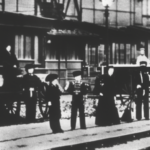When to Rob a Bank” by Steven D. Levitt is a collection of unconventional and thought-provoking insights on various topics, challenging conventional wisdom and offering a fresh perspective.
Freakonomics: A Rogue Economist Explores the Hidden Side of Everything Summary
Freakonomics” by Steven D. Levitt is a captivating exploration of unconventional economic theories that reveal the hidden forces shaping our everyday lives.
Blink: The Power of Thinking Without Thinking Summary
‘Blink’ explores the power of intuitive thinking and the importance of first impressions in decision-making.
Thinking, Fast and Slow Summary
Thinking, Fast and Slow” by Daniel Kahneman explores the two systems of thinking that drive our decisions and reveals the biases and errors that often lead us astray.
The Psychology of Money Summary
The Psychology of Money explores the complex relationship between money and human behavior, offering valuable insights into how we can make better financial decisions.
SuperFreakonomics: Global Cooling, Patriotic Prostitutes And Why Suicide Bombers Should Buy Life Insurance Summary
SuperFreakonomics explores unconventional economic theories, from global cooling to the economics of prostitution and terrorism, challenging conventional wisdom and offering thought-provoking insights.
Predictably Irrational: The Hidden Forces That Shape Our Decisions Summary
‘Predictably Irrational’ explores the irrationality behind human decision-making and the hidden influences that shape our choices.
Nudge: Improving Decisions About Health, Wealth, and Happiness Summary
Nudge” by Richard H. Thaler explores how small changes in decision-making can lead to better outcomes in health, wealth, and happiness.
The Upside of Irrationality: The Unexpected Benefits of Defying Logic at Work and at Home Summary
‘The Upside of Irrationality’ explores the surprising advantages of irrational behavior in various aspects of life, challenging the notion that logic is always the best approach.
The Wisdom of Crowds Summary
The Wisdom of Crowds” by James Surowiecki explores how collective intelligence can lead to better decision-making and problem-solving than individual expertise.


















